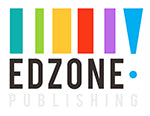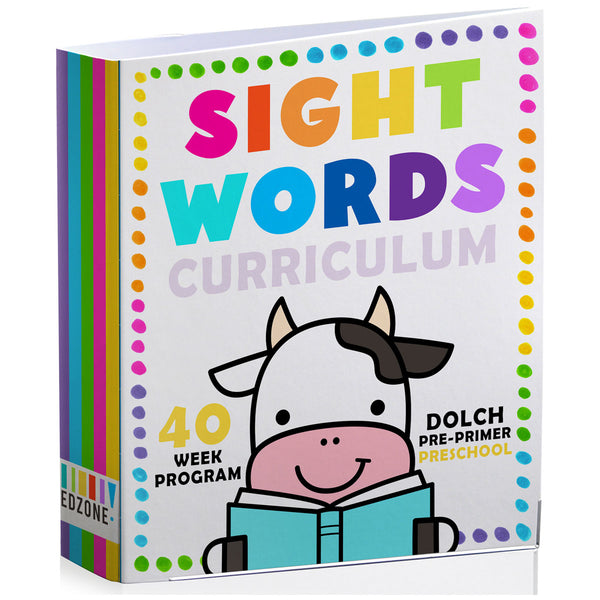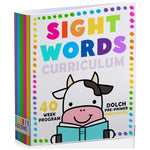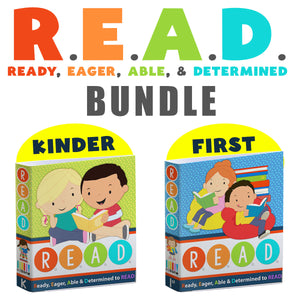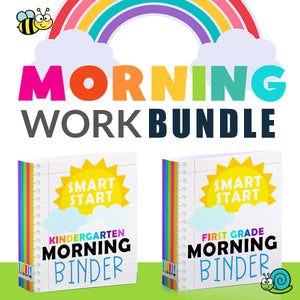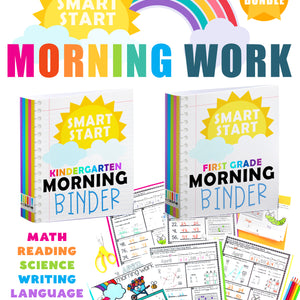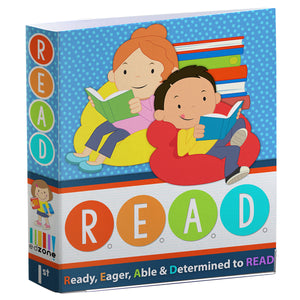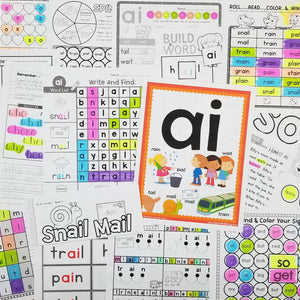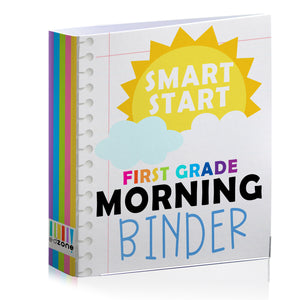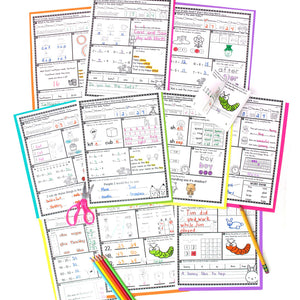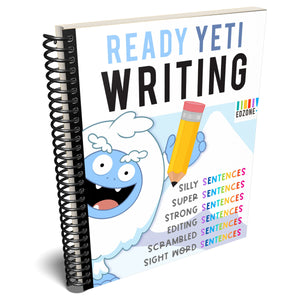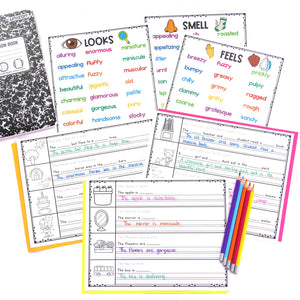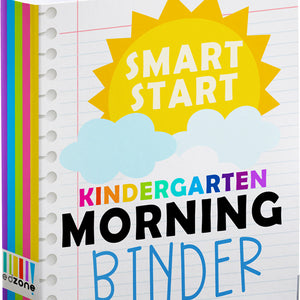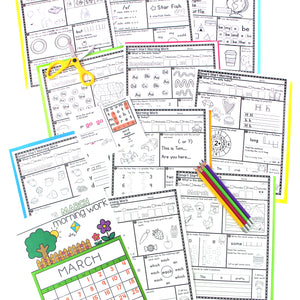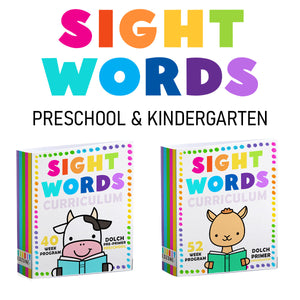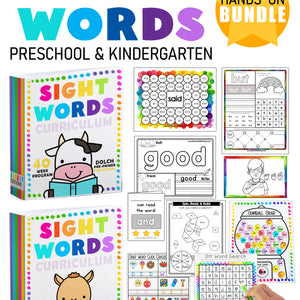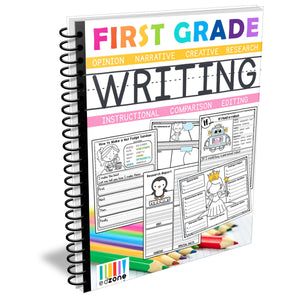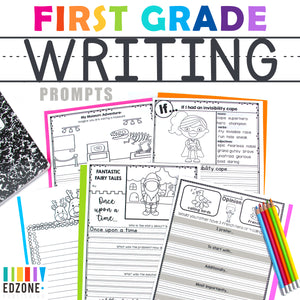You have no items in your shopping cart.
Description
eBook PDF Format
Sight Word of the Week covers 40 key sight words for Preschool and Kindergarten students. Each week covers a single sight word with fun and engaging worksheets, activities, games and hands-on resources. Students put their knowledge to the test with a weekly sight word mini-book that will bridge the gap between emergent and early readers. Providing your students with a springboard to success with this ready to use program. The 40-week curriculum covers all 40 Dolch 220 Pre-Primer words and prints in the necessary order. Simply add the pages to a 3-ring binder and you are set! Suggested Age: PreK or K4
What's Included?
- 40-Week Print & Go Program
- New Dolch 220 Pre-Primer Sight Word Each Week
- 8 Activities for each Sight Word (Monday-Thursday Schedule)
- ASL Sign Chart
- Playdough Mats
- Sight Word Search
- Fishing for Sight Words
- Sight Word Dab &Dot
- Touch & Read Sight Word Sentences
- Sight Word Spelling Worksheet
- Sight Word Cut & Paste Notebook
- Sight Word Bingo
- Mystery Monster Review
- Sight Word Sticker Charts
- Student Assessments
Overview:
What's Included?
- 40-Week Print & Go Program
- New Dolch 220 Pre-Primer Sight Word Each Week
- 8 Activities for each Sight Word (Monday-Thursday Schedule)
- ASL Sign Chart
- Playdough Mats
- Sight Word Search
- Fishing for Sight Words
- Sight Word Dab &Dot
- Touch & Read Sight Word Sentences
- Sight Word Spelling Worksheet
- Sight Word Cut & Paste Notebook
- Sight Word Bingo
- Mystery Monster Review
- Sight Word Sticker Charts
- Student Assessments
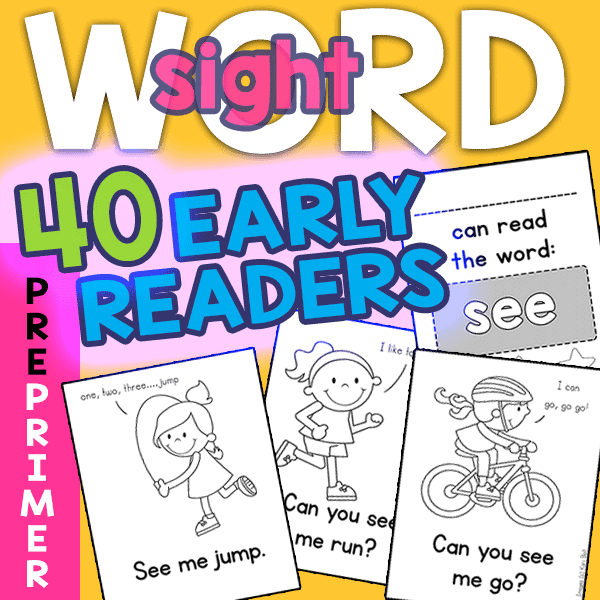
BONUS: 40 Sight Word Early Readers
40 sight word mini-books following the Dolch 220 Pre-Primer word list. Stories include jokes, fairy tales, and lots of sillies! Perfect for bridging the gap between emergent and early readers. Each book features large print, easy to read font for emergent readers. Early readers will enjoy the extra practice reading the (sometimes silly) comments made by the characters in each story.
These readers print on a single sheet of paper and are just the right size for little hands. Store early readers in your Sight Word Notebook Pocket for easy review each week.
Suggested Additional Materials:
While this curriculum has been developed to keep the prep-work and materials list to a minimum, the following items are suggested to get the most out of the program.
- Alphabet Letter Magnets (for ASL chart)
- Snap Cubes (for Sight Word Notebook)
- Composition Notebook (for Sight Word Notebook)
- Alphabet Stamps (for Sight Word Notebook)
- Bingo Daubers (for Dab & Dot Pages)
Weekly Overview:
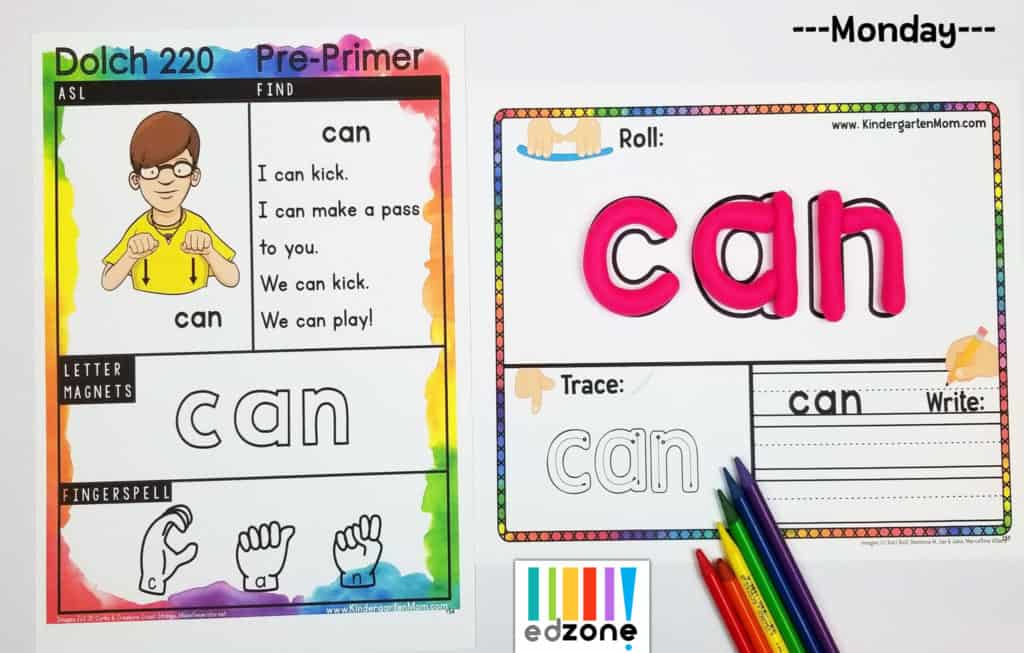
Monday:
ASL Chart: Start each week by learning the ASL for your sight word. Read and recognize the word in sentences. Make your work with letter magnets and practice the fingerspelling as shown on the chart. Hang this chart in the classroom for review each morning.
Playdough Mat: Make your sight word with playdough. Show students how to roll out their dough and form it into letters. Students trace their word using proper letter formation, then write their word on the lines.
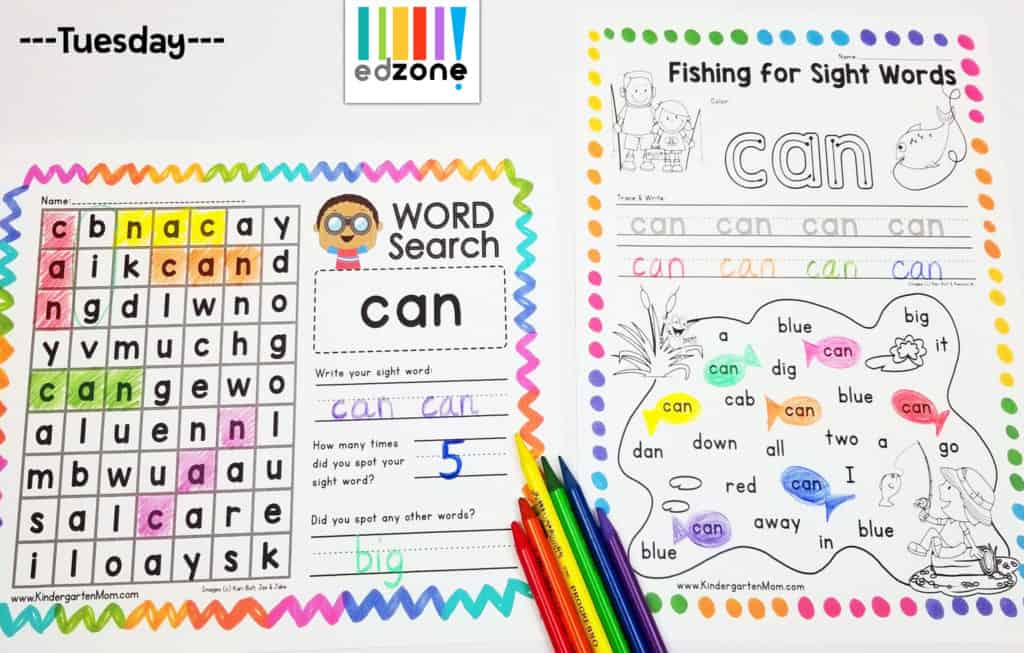
Tuesday:
Word Search: Students search for their word forwards, backwards, and diagonally. Next, students write their word and answer quick questions about what they found.
Fishing for Sight Words: Students practice tracing letter formation, then trace and write their word on the line. Students then fish for their word in the fish pond. Each time they find they word they draw a little fish around it (so the word is in the fish belly).
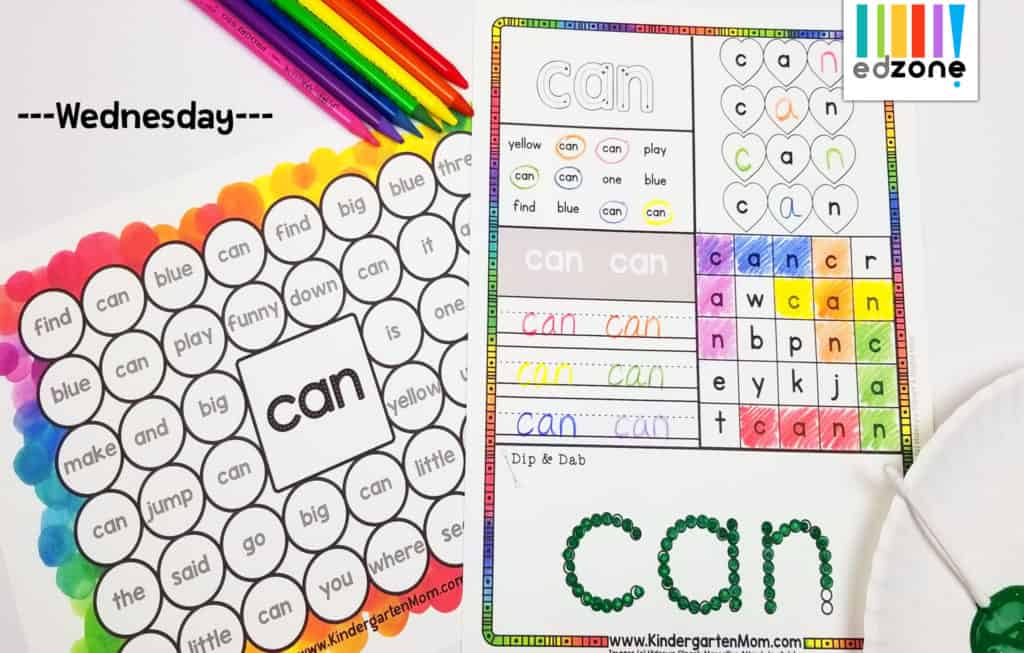
Wednesday:
Sight Word Dab: This colorful page can be used in a variety of ways. Students can use bingo daubers to find and dab their sight word. Alternatively, students can color with crayons, use flat round marbles, coins, or even playdough to roll and smash their word.
Sight Word Worksheet: Students trace, find, write, spell, search and dip and dab their sight word (with a Q-tip).
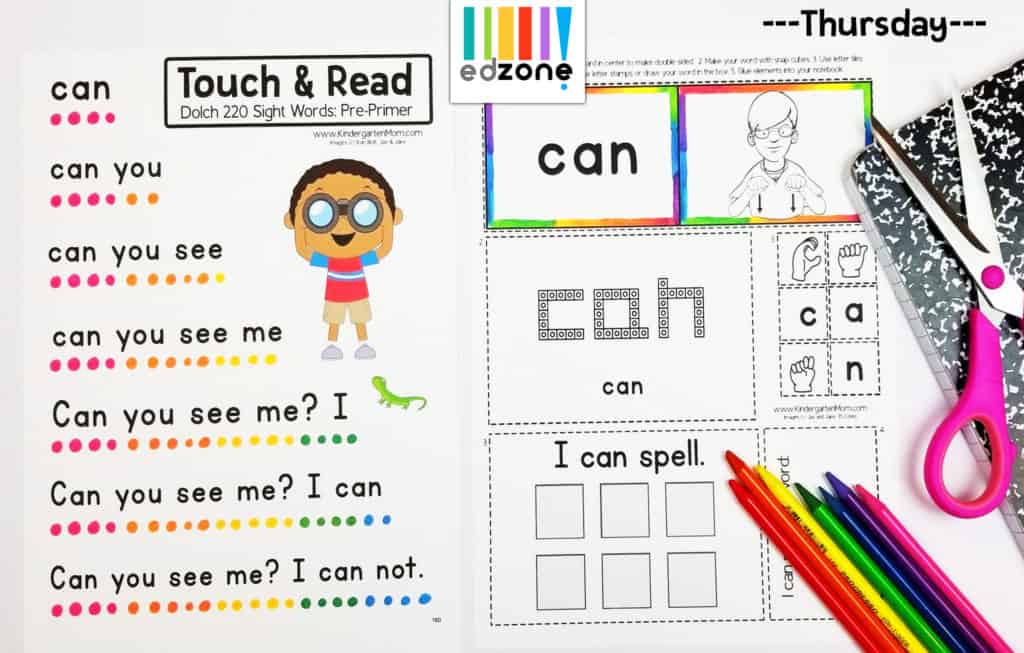
Thursday:
Touch & Read: Students place their fingers on the dots as they read their sight word and slowly build into reading a sentence.
Sight Word Notebook: These activities are intended to be stored in a small notebook. This page includes a flashcard for weekly review, sight word snap cube card to make, and ASL letter tiles to spell the sight word.
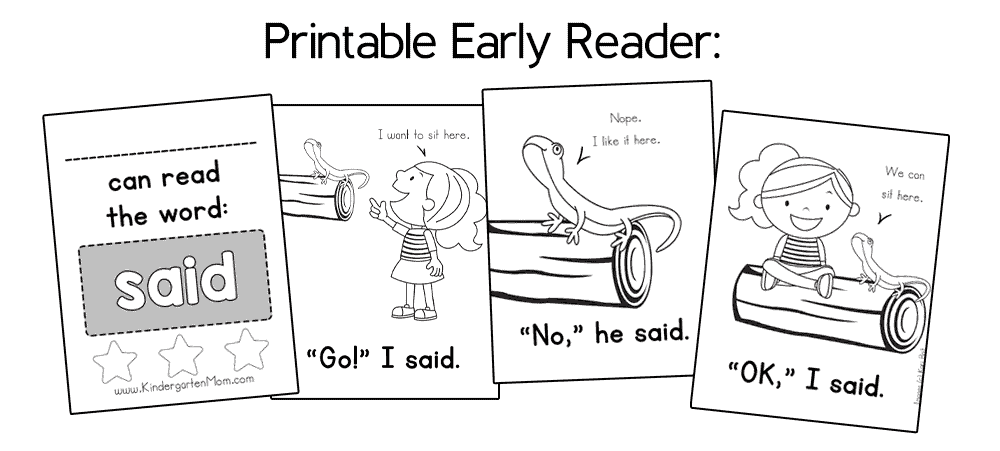
Weekly Early Reader:
At the end of each week, students put their new reading skills into practice with their own early reader. Each booklet takes a single sheet of paper and is folded to make a 4-page early reader. To assemble fold in half horizontally, then fold again in half vertically so that the title page is on the cover of the booklet. Students write their name on the cover page and color a star for each time they have read the book. For extra practice encourage students to underline or color their word as they find it in the story.
Review, Games & Assessments:
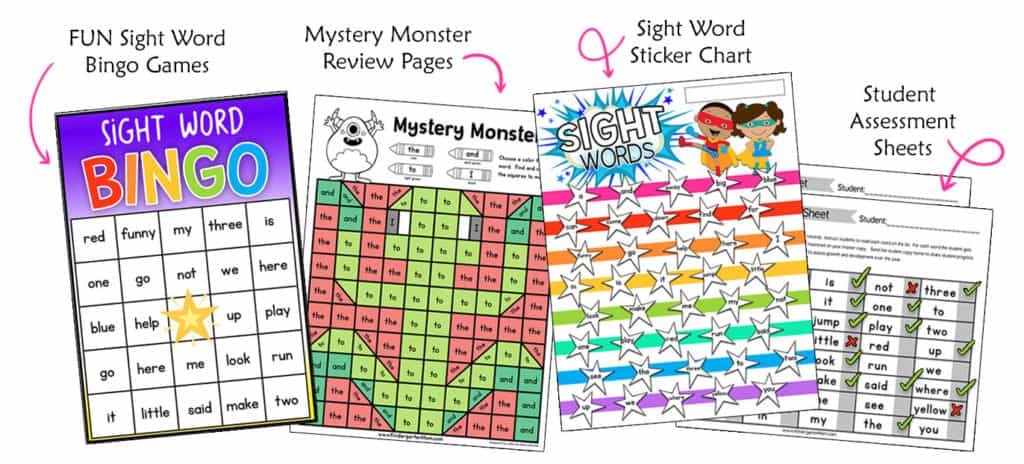
Mystery Monster Review Pages: This curriculum includes 8 Mystery Monster Review Pages for use at weeks 5, 10, 15, 20, etc.... Each sheet includes 3-5 words for students to find and color on their chart. When complete they will reveal a mystery monster. These sheets are wonderful for providing students with a little extra practice.
Sight Word Bingo: We've included two different Bingo Games to be played at Week 20, and Week 40. There are three different bingo boards for each set. Ask students to write their words from weeks 1-20 on a sheet of paper then cut apart to make calling cards.
Sight Word Sticker Chart: Available in full color or black and white, this sticker chart is a great incentive to hang on your classroom wall. Students color in or place a sticker on each word they have mastered.
Sight Word Student Assessment Charts: This assessment chart is a quick way to gague where your student is at with their sight word memorization. Use stickers or write the date next to each word read. We recommend assessing students at regular intervals so you can adapt your studies as necessary. Students needing additional work can use their sight word notebook, word flashcards, and early readers for review.
Description
eBook PDF Format
Sight Word of the Week covers 40 key sight words for Preschool and Kindergarten students. Each week covers a single sight word with fun and engaging worksheets, activities, games and hands-on resources. Students put their knowledge to the test with a weekly sight word mini-book that will bridge the gap between emergent and early readers. Providing your students with a springboard to success with this ready to use program. The 40-week curriculum covers all 40 Dolch 220 Pre-Primer words and prints in the necessary order. Simply add the pages to a 3-ring binder and you are set! Suggested Age: PreK or K4
What's Included?
- 40-Week Print & Go Program
- New Dolch 220 Pre-Primer Sight Word Each Week
- 8 Activities for each Sight Word (Monday-Thursday Schedule)
- ASL Sign Chart
- Playdough Mats
- Sight Word Search
- Fishing for Sight Words
- Sight Word Dab &Dot
- Touch & Read Sight Word Sentences
- Sight Word Spelling Worksheet
- Sight Word Cut & Paste Notebook
- Sight Word Bingo
- Mystery Monster Review
- Sight Word Sticker Charts
- Student Assessments
Overview:
What's Included?
- 40-Week Print & Go Program
- New Dolch 220 Pre-Primer Sight Word Each Week
- 8 Activities for each Sight Word (Monday-Thursday Schedule)
- ASL Sign Chart
- Playdough Mats
- Sight Word Search
- Fishing for Sight Words
- Sight Word Dab &Dot
- Touch & Read Sight Word Sentences
- Sight Word Spelling Worksheet
- Sight Word Cut & Paste Notebook
- Sight Word Bingo
- Mystery Monster Review
- Sight Word Sticker Charts
- Student Assessments

BONUS: 40 Sight Word Early Readers
40 sight word mini-books following the Dolch 220 Pre-Primer word list. Stories include jokes, fairy tales, and lots of sillies! Perfect for bridging the gap between emergent and early readers. Each book features large print, easy to read font for emergent readers. Early readers will enjoy the extra practice reading the (sometimes silly) comments made by the characters in each story.
These readers print on a single sheet of paper and are just the right size for little hands. Store early readers in your Sight Word Notebook Pocket for easy review each week.
Suggested Additional Materials:
While this curriculum has been developed to keep the prep-work and materials list to a minimum, the following items are suggested to get the most out of the program.
- Alphabet Letter Magnets (for ASL chart)
- Snap Cubes (for Sight Word Notebook)
- Composition Notebook (for Sight Word Notebook)
- Alphabet Stamps (for Sight Word Notebook)
- Bingo Daubers (for Dab & Dot Pages)
Weekly Overview:

Monday:
ASL Chart: Start each week by learning the ASL for your sight word. Read and recognize the word in sentences. Make your work with letter magnets and practice the fingerspelling as shown on the chart. Hang this chart in the classroom for review each morning.
Playdough Mat: Make your sight word with playdough. Show students how to roll out their dough and form it into letters. Students trace their word using proper letter formation, then write their word on the lines.

Tuesday:
Word Search: Students search for their word forwards, backwards, and diagonally. Next, students write their word and answer quick questions about what they found.
Fishing for Sight Words: Students practice tracing letter formation, then trace and write their word on the line. Students then fish for their word in the fish pond. Each time they find they word they draw a little fish around it (so the word is in the fish belly).

Wednesday:
Sight Word Dab: This colorful page can be used in a variety of ways. Students can use bingo daubers to find and dab their sight word. Alternatively, students can color with crayons, use flat round marbles, coins, or even playdough to roll and smash their word.
Sight Word Worksheet: Students trace, find, write, spell, search and dip and dab their sight word (with a Q-tip).

Thursday:
Touch & Read: Students place their fingers on the dots as they read their sight word and slowly build into reading a sentence.
Sight Word Notebook: These activities are intended to be stored in a small notebook. This page includes a flashcard for weekly review, sight word snap cube card to make, and ASL letter tiles to spell the sight word.

Weekly Early Reader:
At the end of each week, students put their new reading skills into practice with their own early reader. Each booklet takes a single sheet of paper and is folded to make a 4-page early reader. To assemble fold in half horizontally, then fold again in half vertically so that the title page is on the cover of the booklet. Students write their name on the cover page and color a star for each time they have read the book. For extra practice encourage students to underline or color their word as they find it in the story.
Review, Games & Assessments:

Mystery Monster Review Pages: This curriculum includes 8 Mystery Monster Review Pages for use at weeks 5, 10, 15, 20, etc.... Each sheet includes 3-5 words for students to find and color on their chart. When complete they will reveal a mystery monster. These sheets are wonderful for providing students with a little extra practice.
Sight Word Bingo: We've included two different Bingo Games to be played at Week 20, and Week 40. There are three different bingo boards for each set. Ask students to write their words from weeks 1-20 on a sheet of paper then cut apart to make calling cards.
Sight Word Sticker Chart: Available in full color or black and white, this sticker chart is a great incentive to hang on your classroom wall. Students color in or place a sticker on each word they have mastered.
Sight Word Student Assessment Charts: This assessment chart is a quick way to gague where your student is at with their sight word memorization. Use stickers or write the date next to each word read. We recommend assessing students at regular intervals so you can adapt your studies as necessary. Students needing additional work can use their sight word notebook, word flashcards, and early readers for review.
